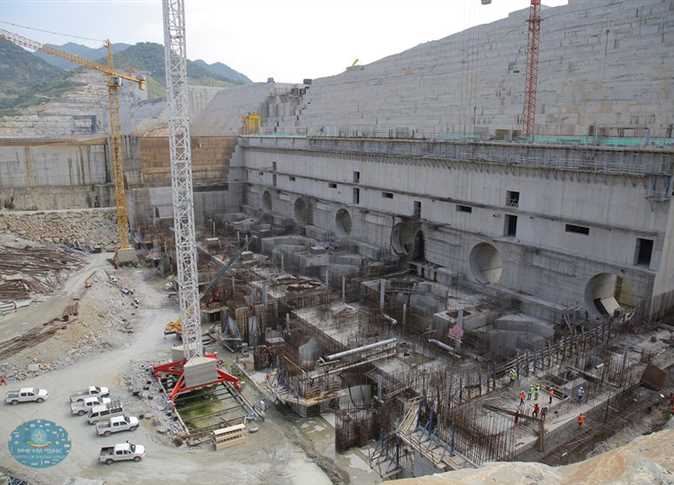
Former Egyptian Minister of Water Resources and Irrigation Mohamed Nasr Eddin Allam called on Tuesday for the UN Security Council to stop the construction of the Grand Ethiopian Renaissance Dam (GERD) and evaluate its structural safety as well as its water and environmental repercussions on Egypt and Sudan after the failure of negotiations with Ethiopia.
Allam’s comments came during a conference on the GERD organized by the Egyptian Center for Strategic Studies.
Allam said the aim of the GERD is political and not developmental. He said that the aim behind the dam’s construction is to control the Nile waters and cancel the role of the High Dam. He said that this, in turn, will negatively impact Egypt’s capabilities and limit its regional role.
He pointed out that GERD’s harm to Egypt will start with the first dam filling and continue with repeated fillings following periods of drought, as this filling will reduce the flow of water from the Blue Nile to Egypt, and Egypt may have to unload the water stock of Lake Nasser to make up for the shortage in water coming from the Blue Nile.
The conference discussed over three sessions the dimensions of the crisis, its repercussions, the Egyptian roles alternative tracks, and the alternatives available. The conference ended without a conclusive recommendation that the issue be taken to the UN Security Council.
The conference ended with an emphasis on Egyptian rights to the waters of the Nile River. These rights are historically fixed, and are guaranteed by international laws, charters and norms, and are a national security issue.
The conference recommended rejecting all policies imposing a de facto solution without a consensus solution that preserves the water and development rights of all parties.
The final statement of the conference said that Egypt continues to adhere to the political and diplomatic options in the management of the crisis without ruling out the right to resort to any other options that guarantee its water rights in accordance with the rules of international law.
The current impasse in negotiations creates a need for mediation by international and regional parties and to provide opportunities for the success of these mediation, conference statements on the stalemate said.
Allam added that the prolonging of the GERD crisis will have negative effects on security, humanitarian and environmental dimensions, so the international community is necessarily involved and the institutions concerned must shoulder their responsibilities.
Last week, Egypt’s Water Resources and Irrigation Ministry said that negotiations with Ethiopia reached a dead end after the two sides failed to reach an agreement over the filling of the GERD.
The Egyptian government blamed the failure of the talks on obstacles from the Ethiopian side.
Ethiopia began constructing the GERD in 2011. The GERD cost $4.7 billion in total to build. Ethiopia plans to fill the reservoir with water to power what is expected to become the largest hydroelectric dam in Africa.
However, Egypt has been particularly critical of the dam’s construction, arguing that it will reduce its legitimate share of Nile river water access, thus threatening its water security.
Edited translation from Al-Masry Al-Youm




